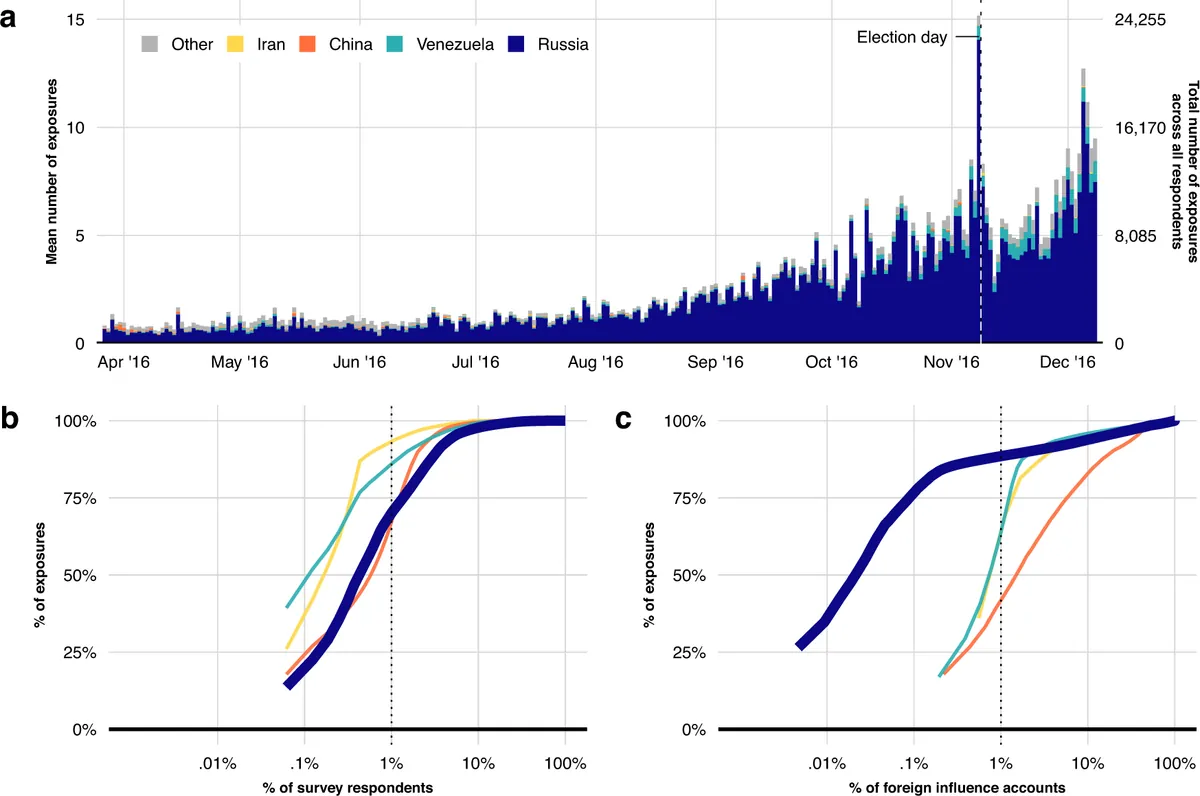U.S. Unveils Russia's Multi-Faceted Influence Operations in September Crackdown
U.S. authorities exposed Russia's diverse influence tactics, including fake domains and covert funding of influencers. The revelations highlight the need for multi-stakeholder action to combat foreign interference effectively.

In September 2023, U.S. authorities unveiled a series of actions targeting Russian influence operations, revealing the extent of Moscow's efforts to manipulate public discourse globally. These operations, employing a diverse array of tactics, underscore Russia's continued focus on interfering in U.S. political conversations and undermining confidence in elections.
The U.S. Justice Department and State Department, along with a Senate Select Committee on Intelligence hearing, highlighted that Russia's influence campaigns extend far beyond social media bots and trolls. The revelations emphasize the need for a comprehensive, multi-stakeholder approach to counter these sophisticated operations effectively.
One significant operation exposed was "Doppelganger," a Russia-linked campaign that created fake news outlets mirroring legitimate media properties. On September 4, 2023, the Justice Department seized 32 internet domains associated with this operation. Doppelganger's tactics included creating spoofed websites that mimicked reputable news sources, such as the Washington Post, and fabricating non-existent offshoots of real entities.

The Doppelganger operation exemplifies the interconnected nature of modern influence campaigns. While social media platforms like Meta engage in daily efforts to thwart these activities, the Justice Department's domain seizure targeted the core of the operation: the fake websites themselves. This action demonstrates the importance of multi-stakeholder cooperation in creating impactful setbacks for such campaigns.
Another strategy unveiled involved the covert funding of media properties and popular influencers. An indictment unsealed by the Justice Department alleged that two employees from RT, a Russian state-affiliated media entity, secretly funneled nearly $10 million into a Tennessee-based content company. This front company recruited prominent right-wing American influencers to create and post videos on social media, often focusing on divisive issues and Russia's preferred topics of conversation.
"RT also operates online fundraising efforts for the Russian military and coordinates directly with the Russian government to interfere in elections, including the Moldovan presidential election later this month."
This revelation highlights the challenges social media companies face in identifying more obscured forms of manipulation. The beneficiaries of Russian funding were real influencers expressing opinions held by some Americans, making it difficult for platforms to detect violations of authenticity policies.
The exposed operations demonstrate that Russia's influence campaigns have evolved significantly since the Internet Research Agency's activities in 2016. Founded in 2013, the Internet Research Agency became infamous for its troll farm operations during the 2016 U.S. presidential election. However, the recent revelations show that Russia's tactics now include a broader range of sophisticated methods.
It's crucial to note that the concept of information warfare is not new. The term "disinformation" was coined by the Soviet KGB in the 1950s, highlighting the long history of such tactics. However, the digital age has provided new avenues for influence operations, with social media platforms becoming attractive tools for covert propagandists since the late 2000s.
While social media companies play a vital role in combating influence operations, their efforts alone are insufficient. The challenges in identifying and countering these sophisticated campaigns require a collaborative approach involving open-source investigators, journalists, intelligence agencies, and international partners.
As the United States approaches future elections, vigilance against foreign influence operations remains paramount. The revelations from September 2023 serve as a reminder that countering these threats requires ongoing cooperation and adaptation across multiple sectors of society.


































